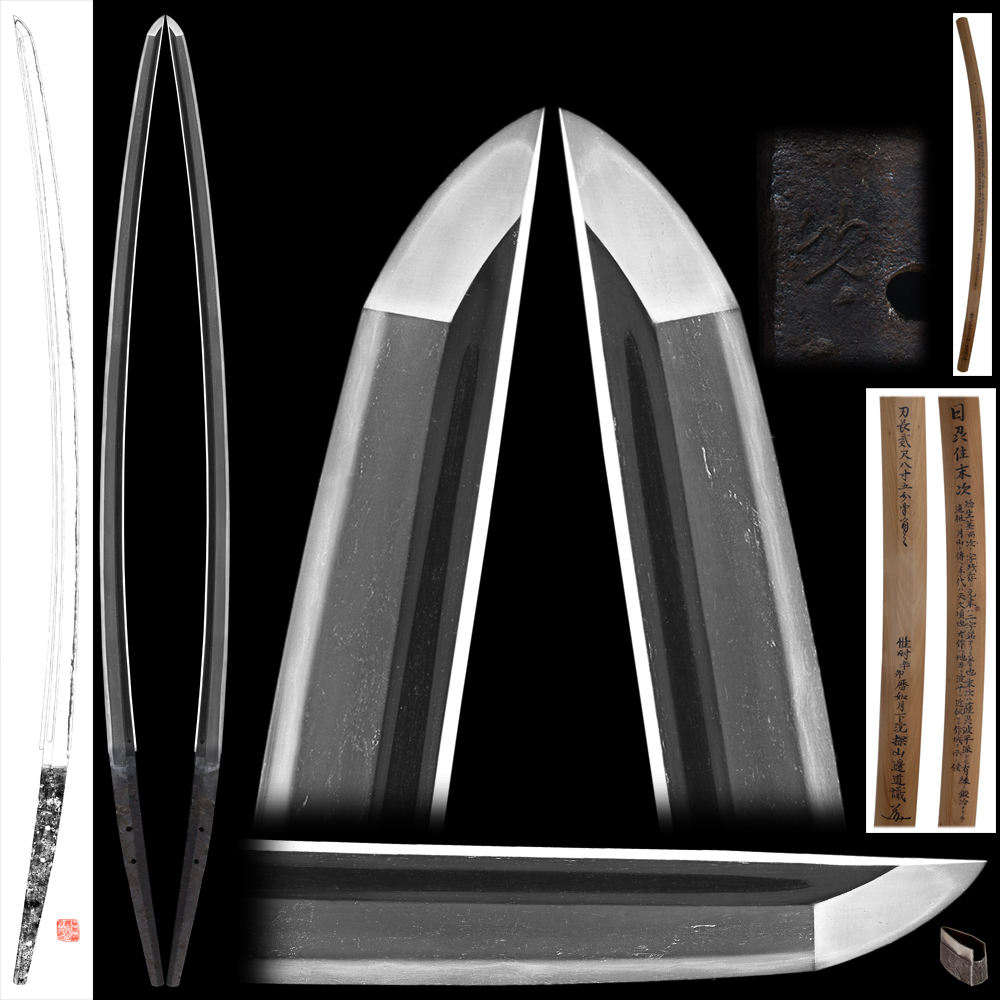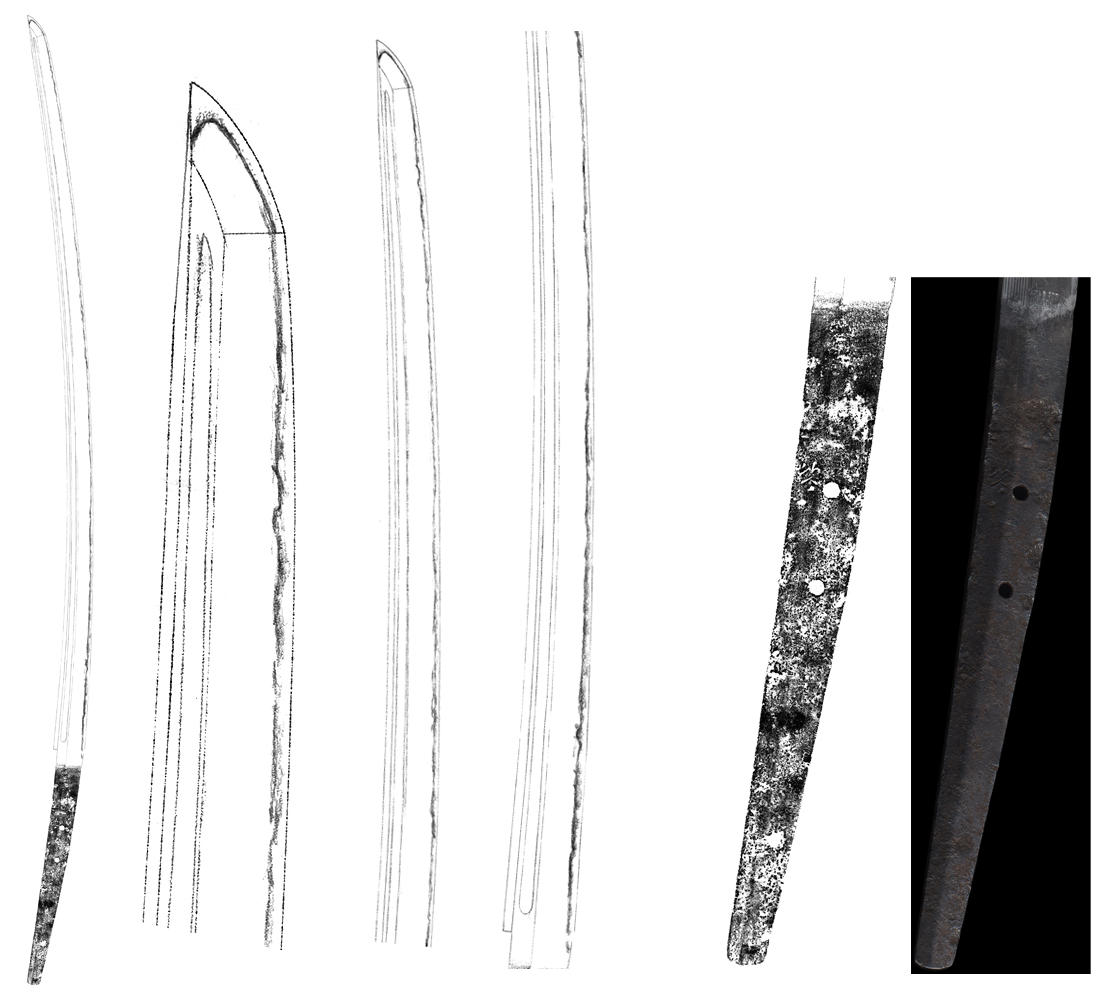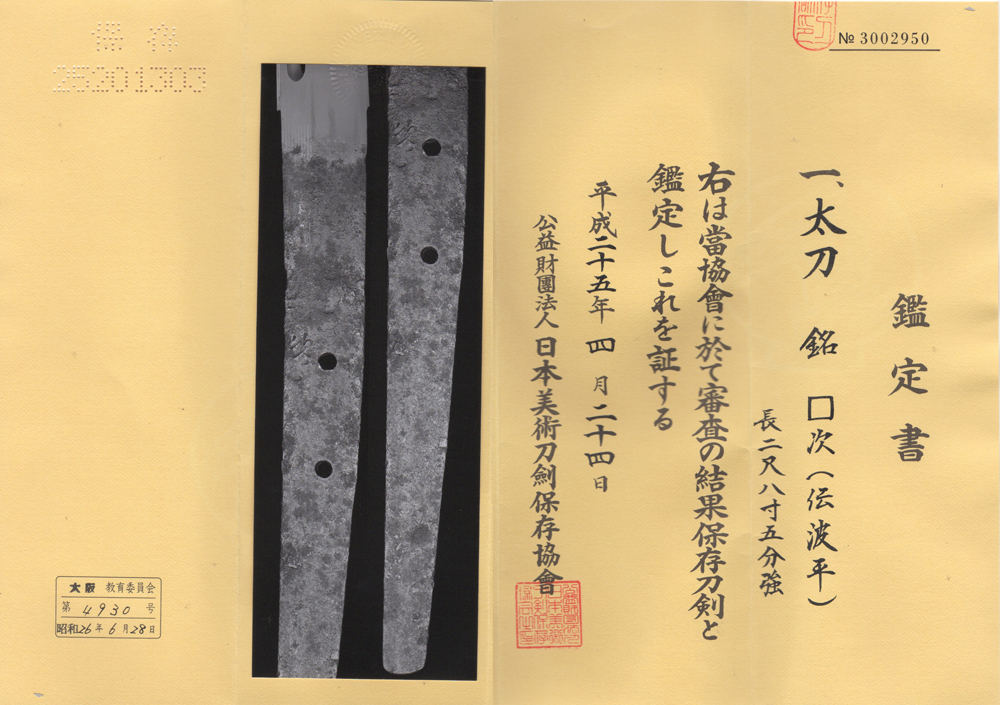Katana : (Sue) Tsugu (Den-Naminohira)
2017/01/28
Katana in Shirasaya(NBTHK Hozon Paper)
Signature:(Sue) Tsugu (Den-Naminohira)
Sayagaki by Tanobe sensei:Nisyu Jyu Suetsugu almost Ubu nakago and left one word Tugi
Originaly the signature is Suetsugu. The Suetsugu is related with Sasyu Naminohira and ancient
early stage was Gassan school.
This blade was made around late Muromachi period Tenbun era.
The sword is very similar to Naminohira.
The length of the blade is 84,84cm
The blade was polished.
Habaki: silver double habaki.
Blade length : 84.84 cm or 33.40 inches.
Sori : 3.63 cm or 1.42 inches.
Mekugi: 2
Width at the hamachi : 3.20 cm or 1.25 inches.
Width at the Kissaki : 1.75 cm or 0.68 inches.
Kasane : 0.77 cm or 0.30 inches.
Weight of only blade:1130 grams.
Era : Late Muromachi period.1532(480 years ago.
Shape : The blade is very long with Ubu nakago and deep sori gorgeous style.
Jitetsu :Itame had well grained with soft feeling texture with jinie attach.
Hamon : Niedeki with thick nioikuchi with kasha, Yo and sunagashi, small kinsuji scatter.
the blade feels morning mist. Boshi is round shape.
Special feature : The founder of the Naminohita started from Kamakura period and continued to
late Edo period. The special feature of the Naminohira is soft feeling jigane and suguha hamon.
In Japanese Naminohira means flat wave so many Japanese navy officers wanted to obtain this
kind of sword as a lucky charm and prayed good fortune and lucky day.
As this sword is huge healthy blade, the sword was stored as dedication by famous Daimyo family.
It is quite rare to see the huge long ubu nakkago sword like old Koto blade.
Because Tokugawa Syogun prohibited to hold long swords at early Edo period in order to prevent
civil war.
The sword was written Sayagaki by Mr Tanobe sensei.
Historical background:Portuguese drift down to Tanegashima island in near Okinawa and taught gun(matchlock) This useful weapon spread all over Japan.
NBTHK Hozon Paper
Aoi Art estimation paper : whole Oshigata.




